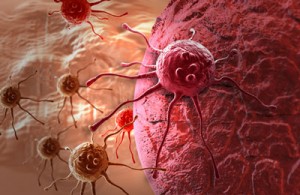Bowel cancer can be divided into four distinct diseases
Posted: 13 October 2015 |
Researchers have shown the bowel cancer can be assigned into different “consensus molecular subtypes”…


A major new study has reported that bowel cancer can be divided up into four distinct diseases, each with its own set of biological characteristics.


The research could allow doctors to treat each type of bowel cancer differently – and drive the design of distinct sets of targeted drugs for each type.
Scientists at The Institute of Cancer Research, London, alongside colleagues at research institutes in the US and Europe, brought together the world’s largest set of data on bowel cancer in order to classify tumours into the four groups.
Researchers believe that the most immediate implication of their findings will be to help identify patients at risk of developing more serious, fast-growing disease that requires more intensive treatment.
The study combined data from 3,443 patients with bowel cancer from all over the world to form the largest collection of molecular and clinical data on the disease ever assembled – including genetic mutations, gene activity, immune system activation, cell metabolism, cancer cell type and ability to invade neighbouring tissues. They aimed to group bowel cancers using mathematical algorithms that combined all these parameters, in order to improve on various existing attempts to classify types of the disease based on smaller datasets.
87% of bowel cancers could be assigned to one of the four groups
Scientists at the ICR and their colleagues found that 87% of bowel cancers could be robustly assigned to one of the four groups. Tumours within the four ‘consensus molecular subtypes’, or CMSs, each had a pattern of irregularities that could leave them vulnerable to the same treatment strategy.
Study co-leader Dr Anguraj Sadanandam, Team Leader in Precision Cancer Medicine at The Institute of Cancer Research, London, said, “Our study has identified four distinct types of bowel cancer, each with a definite set of genetic and biological characteristics, and some of which are more aggressive and more likely to be fatal than others.
“This could allow doctors to pick out those patients with more aggressive disease and treat them accordingly. Ultimately, it could lead to development of new molecular diagnostic tests to diagnose patients by their particular type of bowel cancer, and give them the most effective treatments for that type.”



